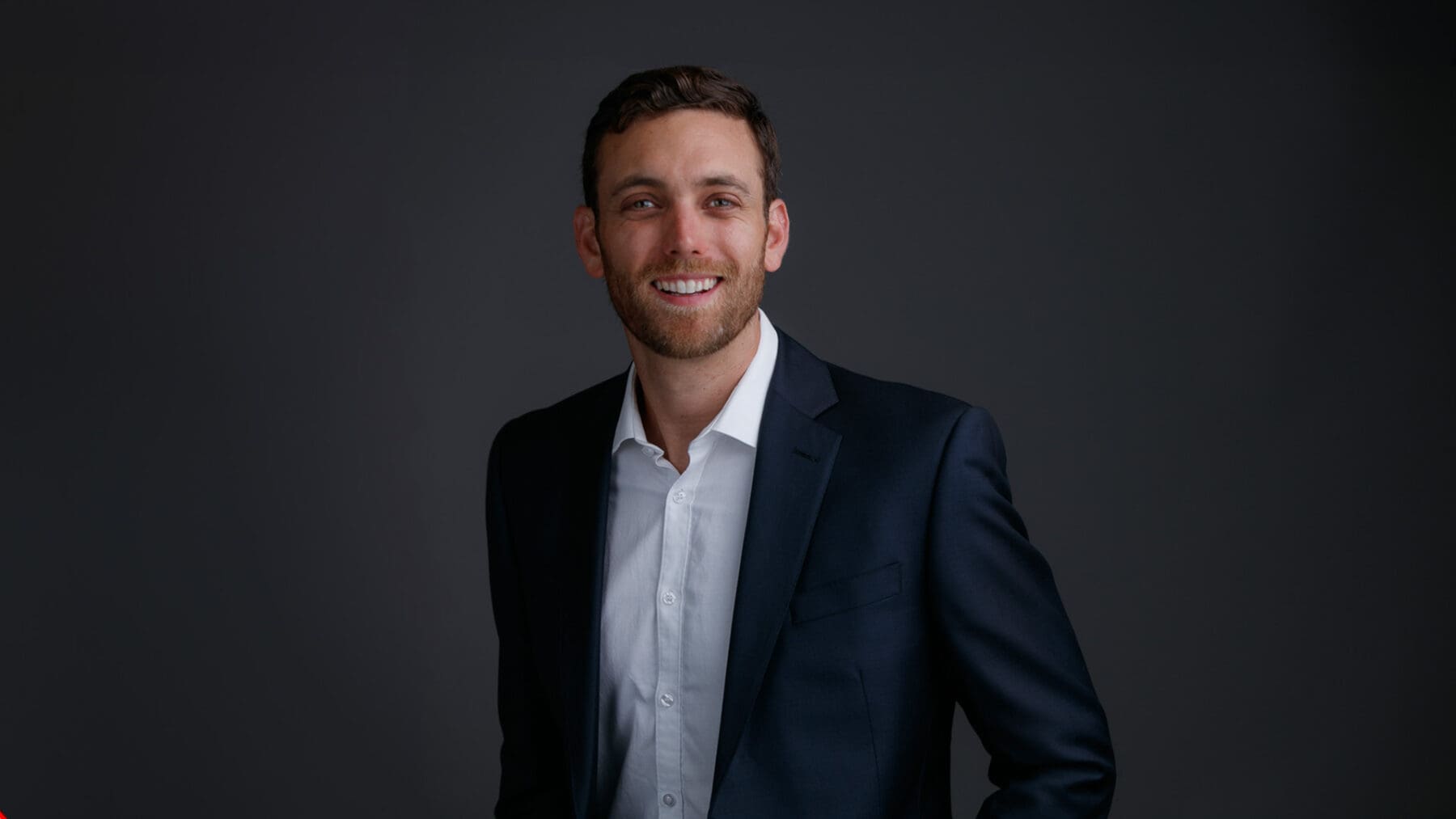With more than 10,000 people turning 65 every day in the U.S., the aging population and senior economy are booming. Entrepreneurs are now finding new ways to improve the care of older adults and promote healthy aging. It’s Daniel Kaplan’s job to figure out which of these companies are solid investments.
Kaplan graduated from USC in 2019 with a dual Master of Science in Gerontology (MSG)/Master of Business Administration (MBA) degree. Among entrepreneurs and investors, Kaplan’s expertise in gerontology gives him a unique perspective.
“My MSG from the Leonard Davis School of Gerontology gives me confidence and credibility,” Kaplan said. “I have a solid understanding of the clinical, social and regulatory aspects of aging. And I know what questions to ask entrepreneurs and where to look for data when evaluating potential investments.”
Venture capital firms focus on aging solutions
Kaplan has recently co-founded a venture capital firm called Equitage Ventures. The word Equitage blends “equity” and “age,” and reflects Kaplan’s vision to bring health equity to aging populations worldwide. Investment funding comes from a strategic group of investors, or limited partners, who also have an interest in global aging solutions.
As a venture capitalist, Kaplan is more than a middleman — he’s involved in the companies he invests in. That involvement may include joining the board or helping connect the company to potential partners or customers. “These are five to 10-year partnerships,” he says, “and we roll up our sleeves and work alongside our companies every day.”
Kaplan got his start in venture capital at Generator Ventures, a firm co-founded by USC Leonard Davis School alum, Katy Fike, MSG, PhD and USC Leonard Davis Board of Councilors member Arnold Whitman. The firm invests in companies that leverage technology to transform the aging experience, such as Third Eye Health.
Third Eye Health provides virtual care for nursing home residents on nights and weekends. “Without Third Eye, nearly all residents who have an acute event would end up in the emergency department,” Kaplan says. “With Third Eye, the treat-in-place rate is 90%. This service is helping more than 100,000 nursing home residents avoid a trip to the hospital every year. It’s also saving Medicare a lot of money.”
Gerontology training drives investment decisions
On the side, Kaplan also invests personal funds in aging-related companies. He relies on his gerontology background to steer him in the right direction. An easy investment for Kaplan was Jukebox Health. The company matches families with occupational therapists who perform home assessments to identify fall risks and other factors that may inhibit independence. The company then connects homeowners to vetted installers who can modify homes to reduce those risks.
“I became interested in Jukebox Health because of a home modification research project I did at USC Leonard Davis School,” Kaplan says. “I love the idea of helping someone stay in their home and preserving their quality of life and independence. I’m also pretty sure that installing a grab bar in the bathroom is cheaper than a broken hip.”
Another favorite course of Kaplan’s was Social Policy and Aging, co-taught by Mireille Jacobson, PhD and Caroline Cicero, PhD, MSW, MPL. He enjoyed the in-depth look at Medicare, Medicaid, managed care and the evolving world of value-based care. He learned how to interpret and appreciate complex health care regulations — something he still does today.
This knowledge in health care financing led Kaplan to invest personal funds in a financial technology platform called Givers. Givers helps family caregivers enroll in Medicaid programs that pay them for taking care of their loved ones at home. Enrollment criteria varies from state to state. The process is often daunting for caregivers who may be pre-occupied with their own families and jobs. Givers simplifies the process of applying, reporting and getting paid.
Logistics of a dual MSG/MBA degree
A dual degree helps students make interdisciplinary connections and develop a broad skillset because they take required coursework for each individual degree. With summer courses and a heavier course load in his second year, Kaplan completed his MSG/MBA in two years.
At the USC Leonard Davis School, dual master’s degree students can choose courses to meet their needs and expectations. “I was very thoughtful about my classes,” Kaplan says. “I even designed a gerontology research course to get the experience I wanted.”
Merging interests to create a new path forward
Kaplan’s interest in aging and empathy for older adults came from his father, who was 58 when Kaplan was born. “I’ve been surrounded by older adults my whole life,” he says. “My dad had a tightknit group of friends. As they grew older, I saw them cherish every moment together. I also saw their health issues eventually plague their independence and quality of life.”
With a BA in International Business from Dickinson College, Kaplan first worked in consulting, then at several start-ups that failed to scale. Things started to click when he found a job at ClearCare, a company that made web-based software for private-duty home care agencies.
After a private equity buyout and company-wide reduction in force, Kaplan co-founded a home care technology consulting business. He also decided to apply to the USC Marshall School of Business’s MBA program.
“I remembered reading somewhere that USC offered a dual MSG/MBA degree,” Kaplan says. “I thought it was an exciting opportunity to merge my two interests.”
Studying gerontology gave Kaplan an academic view of the aging journey and deepened his compassion for older adults. With his new firm, Equitage Ventures, Kaplan is harnessing his experience and passion to make a difference in the world. Kaplan’s dad, an economics professor who also appreciated literature and creativity, would be proud.
To learn more about specialized master’s programs, including the dual MSG/MBA degree, at the USC Leonard Davis School of Gerontology, call us at (213) 740-5156.





